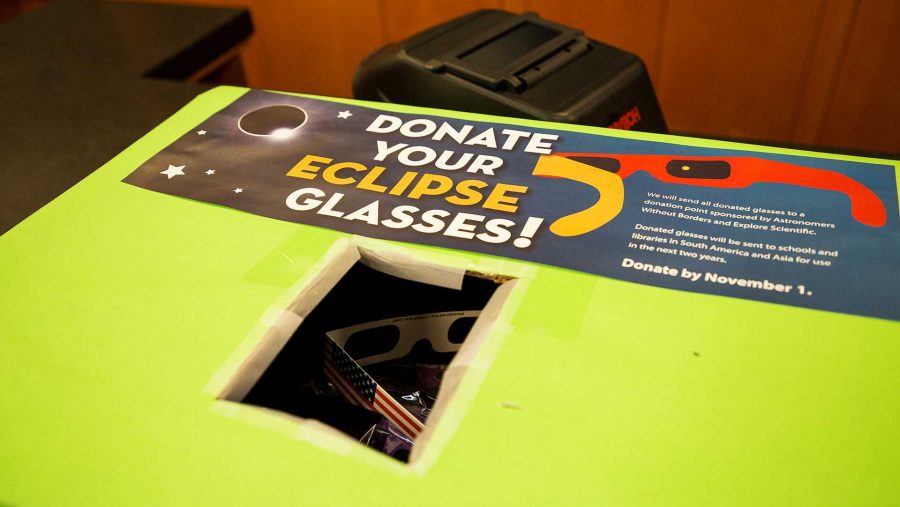In August, Iowa City got to experience a nearly total solar eclipse, and now, thanks to the Iowa City Public Library’s partnership with Astronomers Without Borders, Iowa City residents can help people in Asia and South America safely do the same.
After the total solar eclipse that spanned the continental U.S. earlier this year, Astronomers Without Borders began a program to collect eclipse glasses across America.
For countries such as Chile and Argentina, the next big eclipse will take place in July 2019. An annular eclipse is also set to take place in Asia in December 2019.
The glasses will be distributed at schools, libraries, and other institutions in Asia and South America, allowing people to safely experience the eclipses that will be happening across these two continents in 2019.
RELATED: Iowa City Prepares for Solar Eclipse
According to founder and President Mike Simmons, Astronomers Without Borders is an organization that connects people around the world through a common interest in astronomy.
“It’s something that’s universal, that’s the same in every culture throughout history and time,” he said. “It’s something that we share across all borders.”
The Iowa City Public Library, 123 S. Linn St., is one of the almost 1,000 collection centers in the U.S. registered to be a donation station for the glasses. The library will collect glasses until Nov. 1.
“We had so much excitement in Iowa City about the eclipse, and the library had distributed several thousand pairs of glasses at library programs,” library Director Susan Craig said. “When I saw the opportunity to send the glasses to other places so they can have the same community experience we had in Iowa City, I thought that was a win-win.”
The initiative is also a great alternative for those who are unsure of what to do with their glasses following the phenomenon.
“The August eclipse was a huge event because it crossed the entire continent in populated areas,” Simmons said. “There were probably over 100 million glasses that were distributed in the U.S. No one wants to see those glasses go into a landfill.”
Once the collection period is over, the glasses will be distributed by Astronomers Without Borders volunteers in countries across South America and Asia.
Mia Qu, the public-relations officer for the UI Astronomy Club, said the program is an important way to enable people to view the eclipse safely.
“This is a good initiative because it’s giving people in other countries who are passionate about astronomy the opportunity to observe the solar eclipse safely,” Qu said. “It’s important these countries have enough of a supply of these glasses.”
This is not the first time Astronomers Without Borders has donated glasses to areas in which eclipses occur. Simmons said that in the past, the group has crowd-funded to raise money for the glasses and was able to send about 10,000 to 20,000.
Simmons expects many more glasses will be sent over this time around.
“All kinds of companies and organizations across the nation, big and small, have registered as collection centers,” Simmons said. “We were taken by surprise by the response to this.”



